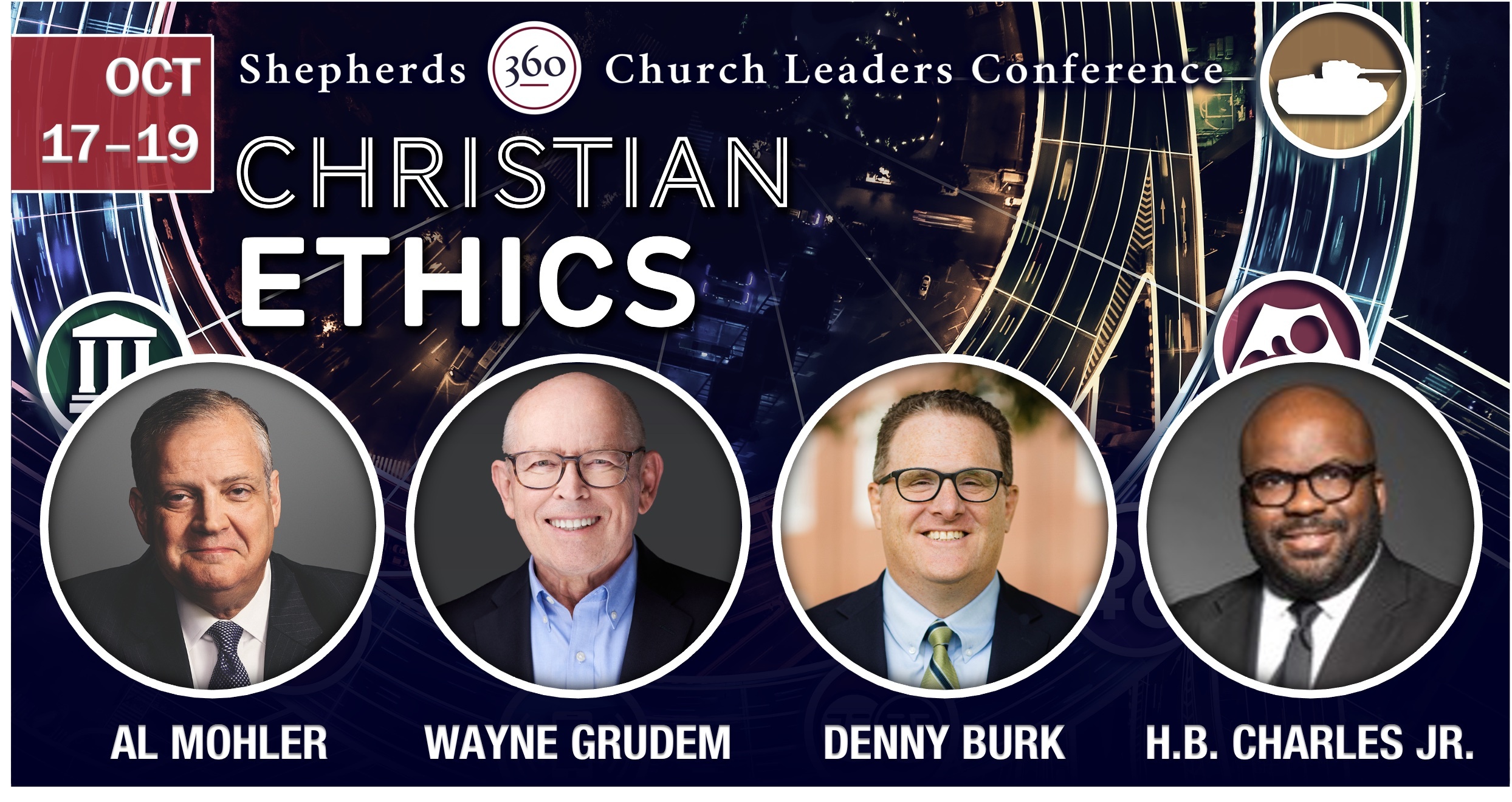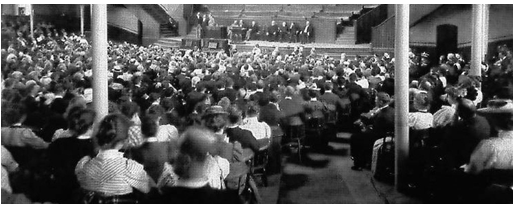While the so-called new atheism has already peaked and captured fewer adherents than its prominence in the media might suggest, it has without question made an impact on the American landscape, including the church.1 It is nearly impossible to ignore the publications, billboard campaigns, and talk-show appearances of strident proponents of atheism that have surged in the last two decades or more. Biologist Richard Dawkins, journalist Christopher Hitchens, and philosophers Daniel Dennett and Sam Harris have popularized atheism while giving it an aggressive edge by attacking religion as both irrational and harmful. Although there is little that is really “new” about the new atheism, other than the smug arrogance that often has accompanied it, the movement has popularized atheism and its arguments and had at least one lingering effect: “making it acceptable (or even fashionable) to be an atheist in today’s world.”2
The Christian church has felt the attacks and the need to respond to atheists’ philosophical arguments. The church also has felt the heartache of formerly professing Christians renouncing the faith and proudly embracing atheism.3
How do we, the church of Jesus Christ, respond to atheists evangelistically, and even more important, how do we protect our young people or other professing Christians among us from falling prey to the atheist appeal?
It appears the primary response of the church has been to address and refute atheist arguments. This is usually undertaken by theologians whose works are published by evangelical publishing houses.4 Such books have surely influenced many pastors and church leaders to address atheism more directly from the pulpit, in the classroom, and in Bible studies, approaching atheism as a false philosophy that is refuted by Scripture and reason.
Such efforts are welcomed and helpful to the church today, particularly in affirming the faith of Christians, but the contention of this article is that such an approach to evangelizing atheists and fully preparing believers and professing believers for the onslaught of the atheist appeal is inadequate. This is because it largely overlooks, dismisses, or misunderstands the true nature of atheism itself. A biblical understanding of the nature of atheism should drive and reform our strategies to respond to it and protect our flocks from its influence. In other words, we need to understand what the Bible says about the nature of atheism in order to properly and effectively respond to it.
WHAT IS ATHEISM?
The word atheism, which combines the Greek prefix α-, meaning “no” or “non” and the word for God (θεος theos), essentially defines itself. An atheist is “one who believes that there exists positive evidence that there is no God. … An atheist is convinced that all religious belief, evidence, and faith are false.”5 While this article will argue that, biblically speaking, there are no true atheists, for purposes of the discussion, we can adopt this fairly typical definition of atheism and say that an atheist is one who denies the existence of God and argues for this assertion.
THE BIBLE AND ATHEISM
Biblical Presupposition
For Christians, the Bible alone is the source of authoritative truth, and nothing could be more incompatible with Scripture than atheism. From the first verse of Scripture, the Bible assumes the existence of God—“and not just a God but the eternal, personal, Triune God described in its pages.”6 Though the Bible does offer evidence of God’s existence (cf. Ps. 19:1; Rom. 1:18), there is no extended or systematic refutation of atheism in the Bible. God’s eternal existence is everywhere presupposed. The reason for this is tied to what the Bible teaches regarding unbelief. For purposes of this study, only the two most prominent passages on this topic will be explored.
Psalm 14
Psalm 14 begins with this simple statement: “The fool has said in his heart, ‘There is no God’” (NASB). The words that follow in verses 1-3 are essentially repeated in Psalm 53:1-3 and several lines are quoted in Romans 3. They expound on the complete depravity of fallen humanity.
Many commentators argue that the psalm probably is not describing absolute atheism, a rejection of God’s existence, but rather a practical atheism—living as though God does not exist.7 There is no real difference in effect, however. The point is the fool has chosen to deny God.
The Hebrew term for “fool” (נבל nabal) does not speak to a person’s intelligence but to his moral character. Grant Osborne argues that in Scripture the fool is “an unbelieving pagan who ignores God and follows self.”8 He spurns and blasphemes God (Ps. 74:18, 22). Indeed, Proverbs 10:23 says, “Doing wickedness is like sport to a fool.”
The fool’s decision to say in his heart that there is no God, then, is an act of the will, not the intellect.9 Derek Kidner states, “The assertion, There is no God, is in fact treated in Scripture not as a sincere if misguided conviction, but as an irresponsible gesture of defiance.”10 Fools say there is no God because “they are corrupt” (Ps. 14:1).
This is a critical point with regard to atheism. Atheism is a moral choice of the will. James Spiegel states it well: “Atheism is not at all a consequence of intellectual doubt. Such doubts are mere symptoms of the root cause—moral rebellion. For the atheist, the missing ingredient is not evidence but obedience.”11 An important New Testament passage reinforces this understanding.
Romans 1
Romans 1:18–2:16 describes the righteous wrath and judgment of God that rests upon the unbelieving world. The opening verses of this section make it clear that God’s existence is evident to all human beings:
For the wrath of God is revealed from heaven against all ungodliness and unrighteousness of men who suppress the truth in unrighteousness … For since the creation of the world His invisible attributes, His eternal power and divine nature, have been clearly seen, being understood through what has been made, so that they are without excuse. (Rom. 1:18, 20)
This classic text on natural, or general, revelation stresses the observable evidence of God’s existence in His creation, which is available to all people. This testimony is so clear that humanity is left without excuse. In fact, they are deserving of God’s wrath because they reject the obvious truth that creation exists because it has a creator.
Verse 21 adds, “For although they knew God, they did not honor him as God or give thanks to him, but they became futile in their thinking, and their foolish hearts were darkened.” “This knowledge of God is a reality for all people, not simply for those who possess unusually logical minds.”12 There is no lack of evidence. It is overwhelming and convincing, so much so that Paul can declare that all people inherently know there is a God, even though that knowledge alone is insufficient for salvation.
The presence of this general revelation of God in His creation explains why there is no reasoned, philosophical refutation of atheism in Scripture. The evidence is such that unbelief is inexcusable. Indeed, only a fool would reject this evidence.
What, then, accounts for the unbelief and the downward spiral into greater sin and perversion outlined in Romans 1? Verse 18 gives the answer: “They suppress the truth in unrighteousness.” As Spiegel explains, “The ‘wickedness’ of the unbeliever works to ‘suppress’ what is manifest in nature. Consequently, the unbeliever’s capacity for rational thought is compromised, and this leads to even more wicked conduct.”13 While this descent into greater wickedness may be a natural consequence of suppressing the truth, the emphasis in Romans 1 is that it is, at least primarily, an act of divine judgment, as God releases such people to “more wicked conduct.”14
The emphasis in Romans 1 is on the rejection of what people know about God—His existence, power, and deity (v. 20)—leading them to idolatry, exchanging “the glory of the incorruptible God for an image in the form of corruptible man and of birds and four-footed animals and crawling creatures” (v. 23). As regards atheism, the point is that all people know there is a God by virtue of general revelation. Atheists suppress this truth they know. Thus, there are, in a sense, no true atheists; there are only those who suppress the truth about God’s existence. And why do they do this? Simply put, they do not want to submit to God. As Romans 1:28 says, they do not “see fit to acknowledge God any longer.”
Romans 1 is consistent with Psalm 14. Both indicate that atheism is a choice of the will. It is the choice of one who is a fool, an immoral person. Therefore, while Christians may argue that atheism leads to immorality—and there is certainly truth in that assertion—the Bible presents atheism as the result of immorality.
Sensus Divinitatis
Arguing in favor of a universal, self-evident knowledge of God’s existence is what John Calvin called the sensus divinitatis, or sense of the divine.
Calvin argues that God as Creator has revealed himself universally both in nature and in the human consciousness. This latter … is an immediate intuition of the existence and majesty of the one true God, which, though obscured by human sinfulness, can never be eradicated.15
Admittedly, this argument is a bit more speculative in nature. In fact, it might be better to simply relate this apparently universal sense of the divine to the image of God in man. As beings created in the image of God, people bear a unique connection to God that, although marred by sin, still testifies by way of conscience to the truth of God’s existence. In fact, we might say that the imago dei is what enables human beings to inherently understand from natural revelation that there is a God.
Every person is a created being who lives in a divinely created world, and that creation—both physical and in terms of the imago dei—makes it abundantly clear that a Creator exists. To reject the existence of God is to suppress the truth that is inherently known by every person as created in God’s image.
Conclusions Regarding Psalm 14 and Romans 1
Psalm 14 (cf. Ps. 53) and Romans 1 point to this conclusion:
Atheism is not the result of objective assessment of evidence, but of stubborn disobedience; it does not arise from the careful application of reason but from willful rebellion. Atheism is the suppression of truth by wickedness, the cognitive consequence of immorality. In short, it is sin that is the mother of unbelief.16
Atheism is a denial of what atheists—and all persons—know is true. It is essentially an attempt at self-deception. Some, no doubt, have been more successful than others at deceiving themselves, but this is the biblical assessment of their atheism.
What are we to make, then, of the many philosophical, psychological, scientific, and historical arguments atheists consistently present to back their assertion that there is no God? The biblical perspective would suggest that the “skeptical objections are the atheists’ façade, a scholarly veneer masking the real causes of their unbelief—causes that are moral and psychological in nature.”17
So, here is the path to atheism. A person engages in immorality of one sort or another. He realizes by way of conscience or exposure to biblical truth that such conduct is morally wrong and an offense to the true God.
When confronted with the revelation of God in Jesus Christ and his written Word, a sinner can fall before God in repentance and faith or remain unrepentant and continue in rebellion against the Creator. The atheist not only has chosen the latter but also has chosen to justify his choice by proclaiming that God does not exist.18
The intellectual arguments denying God’s existence, then, are simply the justification for the moral choice to reject God and live free of moral restraints. E. Michael Jones says it succinctly:
Those who commit evil will be troubled by its pangs, and in their trouble they have only two alternatives: they can either conform their actions to the moral law or conform the moral law to their actions. The former case calls for repentance, the latter rationalization.19
But is this pattern stated too simplistically? After all, can we really point in every case to some particular immoral act that led the atheist to rejection of God? In other words, does the Bible’s description match reality? First, there may not be any one specific moral failure that leads a person to atheism. It could be an accumulation of failures or simply a growing desire to be free to live immorally or at least without the restraints, disapproval, and threatened judgment of a living, holy God. Such thoughts and desires, of course, cannot be easily detected, but they are still immoral.
Second, while most atheists present their decision to reject belief in God in terms of intellect and reasoning, some are quite forthright and explicit in confirming that their journey began with immorality. For example, former Church of Christ minister John Loftus admits his turn to atheism began with an adulterous affair.20 Aldous Huxley stated, “We objected to the morality because it interfered with our sexual freedom.”21
Regardless of what can be clearly observed in life, the Bible offers the only sure explanation for atheism. It is sin, disobedience, rebellion.
IMPLICATIONS
If atheism is, as the Bible teaches, a moral choice of defiance, a rejection of what is obvious to all people, then this has implications for Christians in regard to both how we personally deal with atheists and their arguments and how we instruct and equip the church to confront it.
For Evangelism
How should we, as Christians, address avowed atheists evangelistically? Often such people are quick to raise objections to the Bible and Christianity with a set of predesigned arguments. These frequently center on the problem of evil, the irrelevancy of God in light of evolution, and the presumed contradictions of the Bible and Christian theology.
Traditionally, the Christian response has been to present a refutation of the atheist’s arguments. However, if as argued in this article, atheism is not based on lack of evidence but on moral rebellion, we should not expect an evidential refutation of atheist arguments to be effective. If evidence itself did not lead the atheists to atheism, it will not convince them to abandon it.
In light of the biblical teaching, a better approach would be to center on the real cause of unbelief—rebellion against God. And it is the work of the Holy Spirit through the Word of God that addresses that rebellion. This does not mean honest questions (if there are any) cannot be addressed where necessary, but the Bible and the biblical gospel, not science or rational arguments, always must be primary.
As theologian Robert Culver reminds us, “Faith comes by hearing the Word of God, not in response to arguments.”22 It is the gospel message of Scripture lovingly, persistently presented by a gracious witness who reflects the compassion of Christ that will have the greatest impact on self-proclaimed atheists.
For Instruction
Even more important than how we confront atheists is how we equip Christians and those who profess the Christian faith to resist atheism. There is no lack of evidence that large numbers of young people who grow up in church and profess Christian faith fall away from that faith in their college years. Most do not embrace atheism as such but do adopt a lifestyle and belief system that can be described as practical atheism—living as if there were no God.
In light of the biblical teaching regarding atheism, then, how can we best instruct such young people—and older ones as well—so that they are not drawn into unbelief, whether atheistic, agnostic, or theistic?
First, while it is essential to teach and preach the Bible consistently, it is also important to address specific issues in life from a biblical perspective. This is certainly true of atheism. The biblical evidence for God’s existence should be taught, especially in answer to atheistic objections. The evidence of natural revelation should be a major part of this, as well as other evidences that refute atheism. Herein is the true value of evidences, not as evangelistic tools, but to give assurance to believers (or professing believers) that the Christian faith is built on objective, empirical truth that is grounded in history.
Doubts about the Bible and Christianity are often sown in the hearts of people in their teens and twenties through the pressure of society, popular culture, and peers. And when immorality enters the picture, as it so often does, the doubts offer justification for rejecting God and fully embracing the immorality. Straightforward, biblically and evidentially based instruction can help dispel doubts about God and His Word.
Equally important, however, is a renewed emphasis in the church on instructing people about how to deal with personal sin in their lives. If moral failure is the initial opening to atheism and other forms of rejection of God, then this is an issue that must be addressed early, clearly, and repeatedly. Greater emphasis should be given to the grace of God and the need for confession, repentance, and accountability within the Christian church and community. The people in our churches, and probably the young people especially, need to understand that shame and sorrow over sin are real and good but that there is sure and complete forgiveness when that sin is confessed and there is genuine repentance.
Students need to understand that the Christian life involves an ongoing process of sanctification and that they will continue to be loved and not rejected when they fall into sin. They need to know and observe a church where they are held accountable, lovingly encouraged to repent, and accepted as fellow believers striving with the help of others to follow Christ. In short, they need to learn how to deal with personal sin and be encouraged by others to follow the biblical prescription for doing so. Learning early on how to deal with personal sin in one’s life, even very serious issues of immorality, is critical to living and sustaining a God-honoring life. Indeed, learning to confess and repent of sin will do much to stem the influence of atheism and other systems of unbelief that justify and embrace immorality.
Consistent instruction on the Christian life, then, including the doctrines of creation, anthropology, hamartiology, and soteriology must be an intentional part of the church’s teaching ministry. And, as always, the instruction must be accompanied by godly examples.
ENDNOTES
1 A recent research report cited 25 percent of millennials in America as having a positive view of atheism, while 31 percent were neutral to it and another 31 percent had a negative view. Still, the author notes that there has been a “precipitous rise in the number of young adults who generally fit in the ‘godless’ camp” (George Barna, “Millennials in America: A Research Report,” Cultural Research Center at Arizona Christian University and the Foundations of Freedom, October 2021).
2 Gary Keogh, “Theology After New Atheism,” New Blackfriars 96:1006 (November 2015), 739.
3 Just to name a few: Bart Compolo, son of Tony Compolo, prominent sociologist and representative of the evangelical left; Abraham Piper, son of the popular pastor-theologian John Piper; Ken Daniels, formerly a missionary with Wycliffe Bible Translators; Bruce Gerencser, a former pastor in the Baptist Bible Fellowship; and John Loftus, former pastor in the Church of Christ and graduate of Trinity Evangelical Divinity School. In addition to these are many others who have renounced Christianity but would fit better into the category of agnostic—one who says he or she does not or cannot know if there is a God. Much of what is said in this article will relate to agnostics as well.
4 See, for example, Paul Copan and William Lane Craig, eds., Contending with Christianity’s Critics: Answering New Atheists and Other Objectors (Nashville, TN: B&H Academic, 2009); Tom Gilson and Carson Weinauer, eds., True Reason: Confronting the Irrationality of the New Atheism (Grand Rapids, MI: Kregel Publications, 2013); William Lane Craig and Chad Meister, eds., God Is Great, God Is Good: Why Believing in God Is Reasonable and Responsible (Downers Grove, IL: InterVarsity Press, 2009); Norman L Geisler and Frank Turek, I Don’t Have Enough Faith to Be an Atheist (Wheaton, IL: Crossway, 2004); and from a Roman Catholic perspective, Edward Feser, The Last Superstition: A Refutation of the New Atheism (South Bend, IN: St. Augustine’s Press, 2008).
5 Josh McDowell and Don Stewart, Handbook of Today’s Religions (San Bernadino, CA: Here’s Life, 1983), 413-14.
6 Jarl K. Waggoner, “The New Atheism—An Old Error,” Gospel Herald and the Sunday School Times, Spring Quarter, 2011, 17.
7 Willem A. VanGemeren, “Psalms” in The Expositor’s Bible Commentary, ed. Frank E. Gaebelein, vol. 5 (Grand Rapids, MI: Zondervan, 1991), 143; Allen P. Ross, A Commentary on the Psalms, vol. 1 (Grand Rapids, MI: Kregel Academic and Professional, 2011), 37.
8 Grant R. Osborne, The Hermeneutical Spiral: A Comprehensive Introduction to Biblical Interpretation, second ed. (Downers Grove, IL: InterVarsity, 2006), 244.
9 Ross, Commentary on Psalms, 376.
10 Derek Kidner, Psalms 1–72, The Tyndale Old Testament Commentaries (Downers Grove, IL: InterVarsity Press, 1975), 79.
11 James S. Spiegel, The Making of an Atheist: How Immorality Leads to Unbelief (Chicago, IL: Moody Publishers, 2010), 11. The author of this article wrote a popular-level article on the New Atheism that was published in 2011, though it was actually written before the publication of James Spiegel’s 2010 book. Spiegel’s landmark work expanded and refined my own thoughts on this subject.
12 Thomas R. Schreiner, Romans, Baker Exegetical Commentary on the New Testament (Grand Rapids, MI: Baker Books, 1998), 86.
13 Spiegel, The Making of an Atheist, 53.
14 Turning sinners over to sin more, and more wickedly, seems at first glance to be a strange expression of God’s wrath and judgment since the ungodly are essentially getting what they want. The key to understanding why this is such a horrifying judgment is Paul’s words later in this section. In Romans 2:5-6, he writes, “But because of your hard and impenitent heart you are storing up wrath for yourself on the day of wrath when God’s righteous judgment will be revealed. He will render to each one according to his works.” Many, if not most, commentators relate these words to the Jewish people Paul is addressing, but the principle of judgment according to works is universal and applies to all unbelievers (cf. Rev. 20:13). Thus, the greater the evil, the greater the judgment in eternity. They are storing up greater and greater (divine) wrath for themselves for the day of judgment.
15 David G. Dunbar, “Sensus Deitatis, Sensus Divinitatis,” in Evangelical Dictionary of Theology, 2d ed., ed. Walter A. Elwell (Grand Rapids, MI: Baker Academic, 2001), 1090.
16 Spiegel, The Making of an Atheist, 18.
17 Spiegel, The Making of an Atheist, 11. Spiegel mentions psychological causes here as well. His book surveys the lives of well-known atheists, noting some factors that might have led to the moral decision to reject God. These include broken father relationships and the desire for sexual freedom. Such factors may help explain what leads to atheism, but as he admits, they do not excuse it. One may term them psychological reasons, but they cannot be separated from morality and moral decisions.
18 Waggoner, “The New Atheism,” 17.
19 E. Michael Jones, Degenerate Moderns: Modernity as Rationalized Sexual Misbehavior (San Francisco, CA: Ignatius Press, 1993), 78.
20 See John W. Loftus, Why I Rejected Christianity: A Former Apologist Explains (Victoria, BC: Trafford Publishing, 2007) and Norman Geisler’s review, “From Apologist to Atheist: A Critical Review,” Christian Apologetics Journal 6:1 (Spring 2007), 93-110.
21 Cited by Spiegel, The Making of an Atheist, 73. While Huxley was not referring specifically to belief in God, the point about choosing to reject morality is applicable.
22 Robert Duncan Culver, Systematic Theology: Biblical and Historical (Ross-shire, Great Britain: Mentor, 2005), 29.








